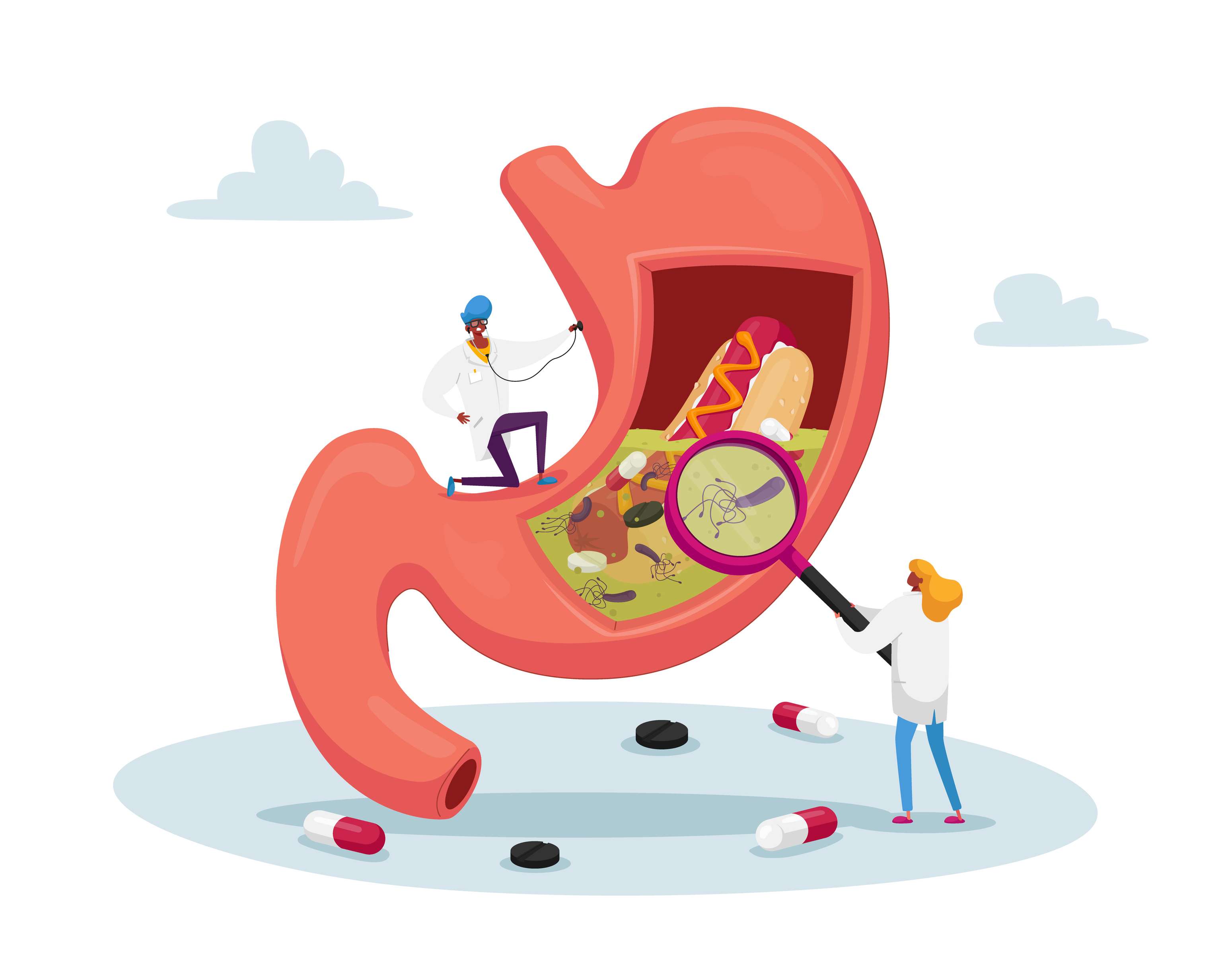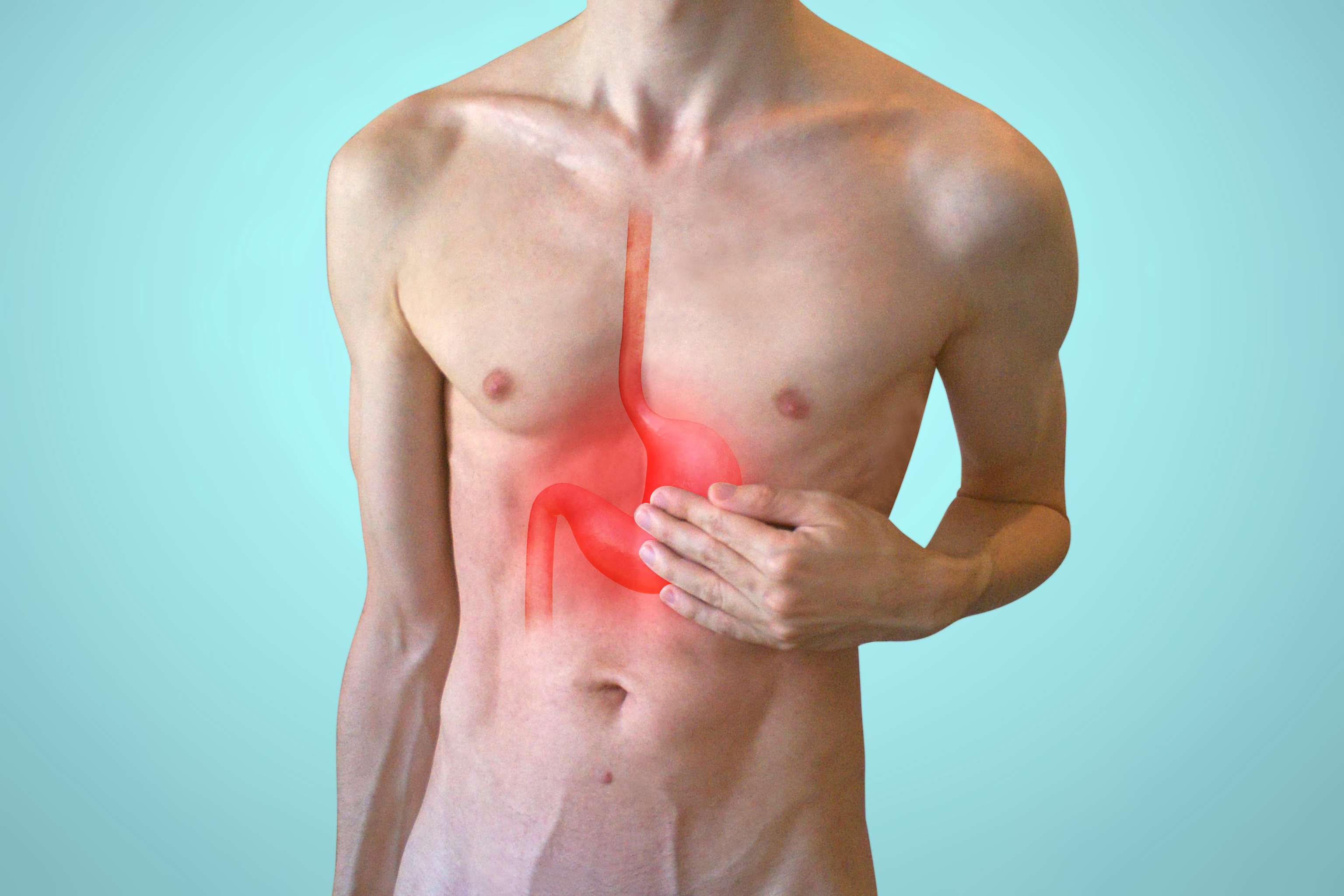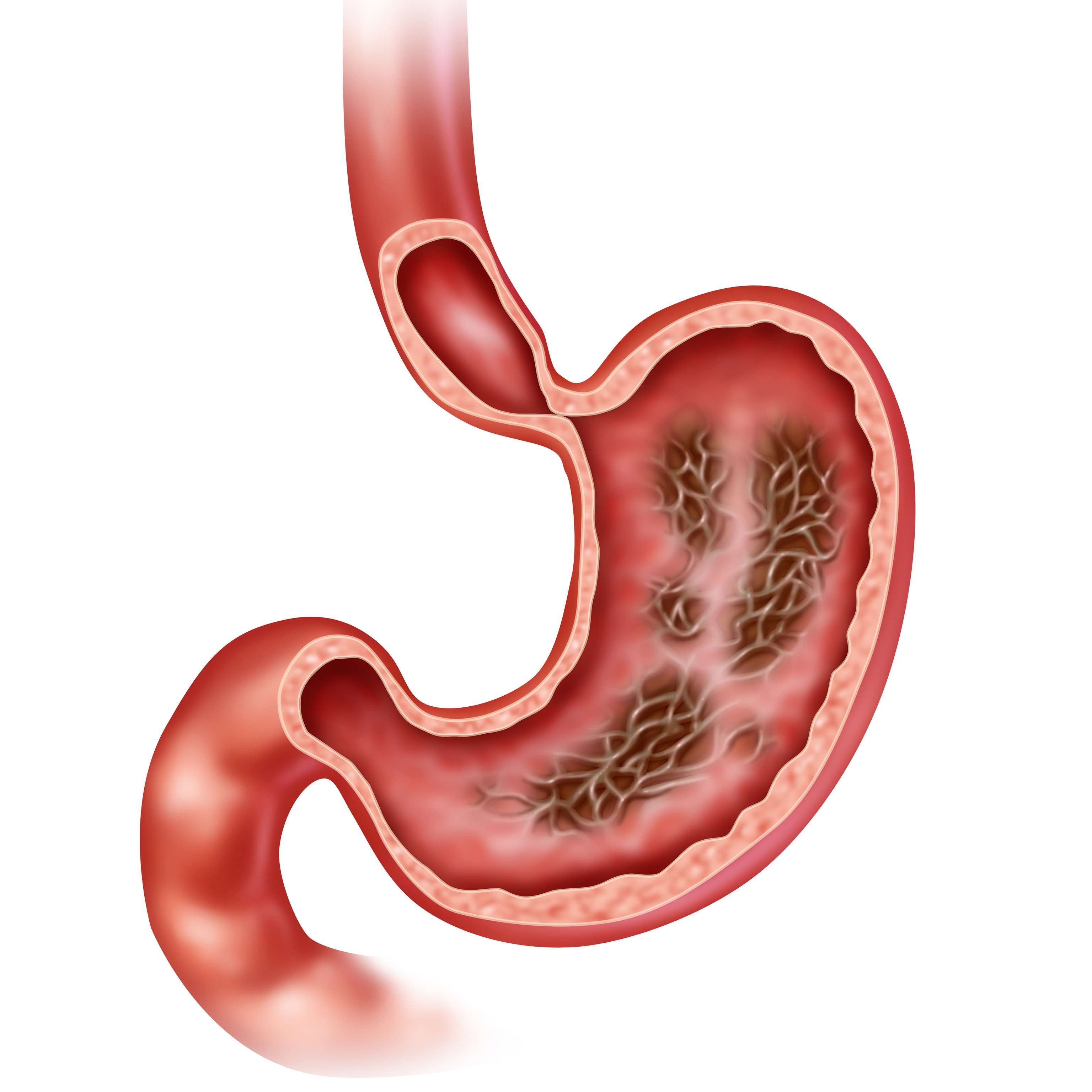The triggers of acute gastritis are manifold. Harmful substances or other factors that cause an excess of gastric acid can be the causes. These include:
- Excessive consumption of alcohol and/or nicotine.
- Excessive, frequent consumption of stomach-irritating stimulants such as coffee or hot spices
- Excessive intake of certain medications such as painkillers and anti-inflammatories
- Mental and physical stress
- Bacteria-induced food poisoning e.g. by staphylococci or salmonellae
- Irritation of the gastric mucosa by foreign bodies such as a feeding tube
- Acids or alkalis
- After surgical interventions
- Burns
- "Runner's stomach": hyperacidity of the stomach caused by running, diet and hormones
In the context of bacteria-induced gastritis, bacterial metabolites are primarily responsible for destruction of the gastric mucosa. In these cases, gastritis may be contagious due to transmission of the causative bacteria. Attention must be paid to adequate toilet hygiene, as the bacteria are usually excreted in the stool.





